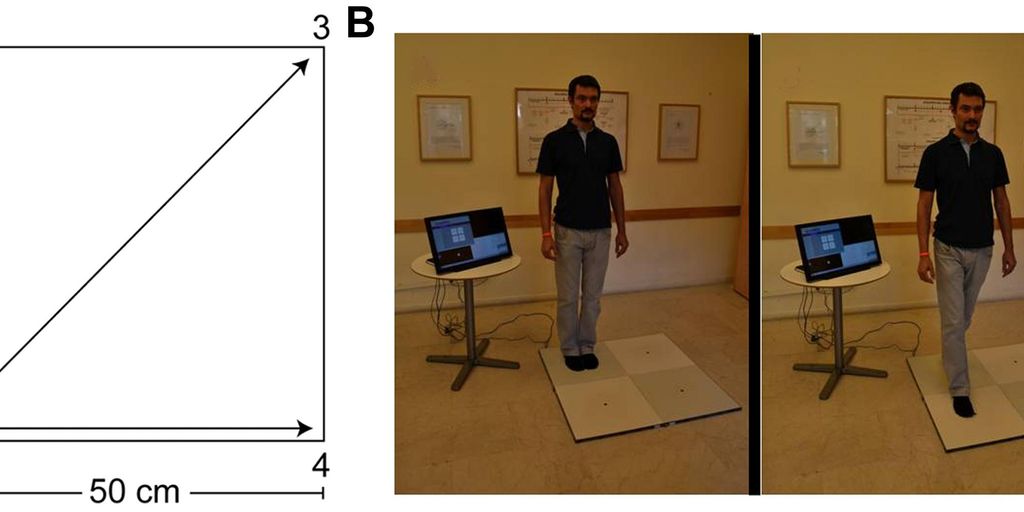Vertigo, characterised by dizziness and a sense of spinning, can significantly impact daily life and overall well-being. Vestibular physiotherapy has emerged as a highly effective treatment method, offering tailored interventions to address the specific needs of individuals suffering from vertigo. This article aims to provide a comprehensive understanding of vestibular physiotherapy from a patient’s perspective, exploring its principles, benefits, and the experiences of those who have undergone this specialised form of therapy.
Key Takeaways
- Vestibular physiotherapy offers personalised treatment plans to address the unique needs of each patient suffering from vertigo.
- Core principles of vestibular physiotherapy include exercises aimed at improving balance, gaze stability, and central nervous system compensation.
- Research and clinical evidence strongly support the effectiveness of vestibular physiotherapy in managing vertigo symptoms.
- Patients often experience significant improvements in their quality of life, balance, and mobility through vestibular physiotherapy.
- Choosing a qualified and experienced vestibular physiotherapist is crucial for the success of the treatment plan.
Understanding Vertigo and Its Impact

Vertigo can stem from various causes, such as inner ear disorders, vestibular migraines, and head injuries. The symptoms of vertigo can range from mild to severe and can significantly affect your ability to work, drive, or even perform simple tasks.
Common Symptoms of Vertigo
Vertigo is characterised by a sensation of dizziness that often brings with it nausea and imbalance. These symptoms can make it challenging to carry out daily activities and can lead to a persistent feeling of unsteadiness.
How Vertigo Affects Daily Life
The impact of vertigo on daily life is profound. It can negatively influence your ability to perform your daily routine, making it difficult to walk or move without the risk of falling. This physical impact can hinder your ability to perform daily activities and may lead to an increased risk of injuries.
Emotional and Psychological Effects
The unpredictable nature of vertigo can instil fear and anxiety in affected individuals. This emotional toll can be as debilitating as the physical symptoms, leading to a cycle of anxiety and dizziness that can be hard to break.
The impact of vertigo on quality of life underscores the importance of effective management strategies, as the condition can negatively affect your overall well-being.
The Role of Vestibular Physiotherapy in Vertigo Management

Vestibular physiotherapy, also known as vestibular rehabilitation, is a specialised form of physical therapy aimed at addressing inner ear and balance disorders, including vertigo. This therapy focuses on promoting central nervous system compensation for inner ear deficits, thereby improving gaze stability, balance, and mobility.
Benefits of Vestibular Physiotherapy for Vertigo
Vestibular physiotherapy offers a range of benefits for individuals suffering from vertigo and balance disorders. The tailored interventions and exercises employed in vestibular physiotherapy programmes contribute to significant improvements in various aspects of your life.
Clinical Evidence Supporting Vestibular Physiotherapy

Research Studies and Findings
Extensive research, including double-blind placebo-controlled trials, has validated the use of vestibular rehabilitation in treating vertigo-related conditions. Studies have shown that vestibular physiotherapy significantly benefits patients with acute or subacute unilateral vestibular dysfunction. For instance, a 2024 review found that optokinetic stimulation had no effect on improving disability due to dizziness when compared to other treatments.
Expert Opinions and Recommendations
The American Physical Therapy Association’s Evidence-Based Clinical Practise Guidelines recommend vestibular rehabilitation as a first-line treatment for vertigo and balance disorders. Experts agree that vestibular physiotherapy should be considered for any patients experiencing dizziness, as it provides substantial benefits.
Patient Success Stories
Many patients have reported significant improvements in their quality of life after undergoing vestibular physiotherapy. Testimonials often highlight the reduction in dizziness and improved balance, which contribute to a better overall sense of well-being.
Patient Experiences with Vestibular Physiotherapy
Initial Assessments and Diagnoses
Patients often begin their journey with a comprehensive assessment to determine the root cause of their vertigo. This initial step is crucial for developing a personalised treatment plan. Accurate diagnosis can significantly impact the effectiveness of the therapy.
Personal Stories and Testimonials
Many patients have shared their positive experiences with vestibular physiotherapy. For instance, one patient noted a remarkable improvement in their balance and a reduction in dizziness after just a few sessions. Another patient highlighted the emotional relief they felt once they started seeing progress.
Challenges and Triumphs During Treatment
The path to recovery is not always smooth. Patients may face challenges such as initial discomfort during exercises or slow progress. However, the triumphs often outweigh these hurdles. Overcoming these challenges can lead to significant improvements in quality of life.
The journey through vestibular physiotherapy can be demanding, but the rewards of reduced symptoms and improved balance make it worthwhile.
Choosing the Right Vestibular Physiotherapist
Qualifications and Certifications to Look For
When selecting a vestibular physiotherapist, it’s crucial to ensure they have the appropriate qualifications and certifications. Look for professionals who have specialised training in vestibular rehabilitation therapy (VRT). This ensures they are well-versed in the specific exercises and techniques required to manage vertigo effectively.
Questions to Ask Potential Therapists
Before committing to a therapist, consider asking the following questions:
- What specific training have you received in vestibular rehabilitation?
- How many years of experience do you have in treating vertigo and balance disorders?
- Can you provide any patient success stories or testimonials?
- What is your approach to customising treatment plans for individual needs?
Importance of a Personalised Approach
A personalised approach is essential in vestibular physiotherapy. Each patient’s condition is unique, and customised treatment plans are vital for effective management. Ensure your therapist conducts a thorough initial assessment to tailor the therapy to your specific needs.
Finding the right vestibular physiotherapist can significantly impact your recovery journey. Take the time to research and choose a professional who meets your needs and makes you feel comfortable.
Conclusion
In conclusion, vestibular physiotherapy stands out as a crucial and evidence-based intervention for managing vertigo and its associated symptoms. By offering tailored exercises and techniques that address the specific needs of individuals, this therapy not only alleviates the distressing symptoms of vertigo but also significantly enhances the overall quality of life. The personalised nature of vestibular physiotherapy ensures that each patient receives the most effective care, promoting better balance, reducing fall risks, and improving daily functioning. For those grappling with the challenges of vertigo, vestibular physiotherapy provides a pathway to regaining stability and confidence in their everyday lives.
Frequently Asked Questions
What is vestibular physiotherapy?
Vestibular physiotherapy, also known as vestibular rehabilitation, is a specialised form of physical therapy aimed at treating inner ear and balance disorders, including vertigo. It involves customised exercises designed to promote central nervous system compensation for inner ear deficits.
How does vestibular physiotherapy help with vertigo?
Vestibular physiotherapy helps manage vertigo by using specific exercises to address the underlying causes, such as canalith repositioning techniques and gaze stabilisation exercises. These interventions aim to reduce symptoms, improve balance, and enhance the overall quality of life.
What are common symptoms of vertigo?
Common symptoms of vertigo include dizziness, a spinning sensation, imbalance, nausea, and difficulty focusing. These symptoms can significantly impact daily activities and overall well-being.
How long does it take to see improvements with vestibular physiotherapy?
The duration for noticeable improvements varies among patients based on the severity of their condition and adherence to the prescribed exercises. Some individuals may experience relief within a few weeks, while others might require several months of consistent therapy.
Is vestibular physiotherapy suitable for everyone with vertigo?
While vestibular physiotherapy is effective for many individuals with vertigo, it may not be suitable for everyone. A thorough assessment by a qualified vestibular physiotherapist is essential to determine the appropriateness of this treatment for each patient.
What qualifications should I look for in a vestibular physiotherapist?
When choosing a vestibular physiotherapist, look for professionals with specialised training and certifications in vestibular rehabilitation. Additionally, experience in treating vertigo and balance disorders is crucial for effective management.
